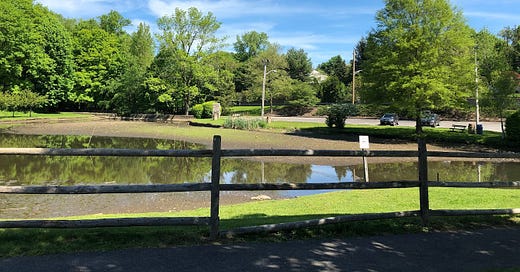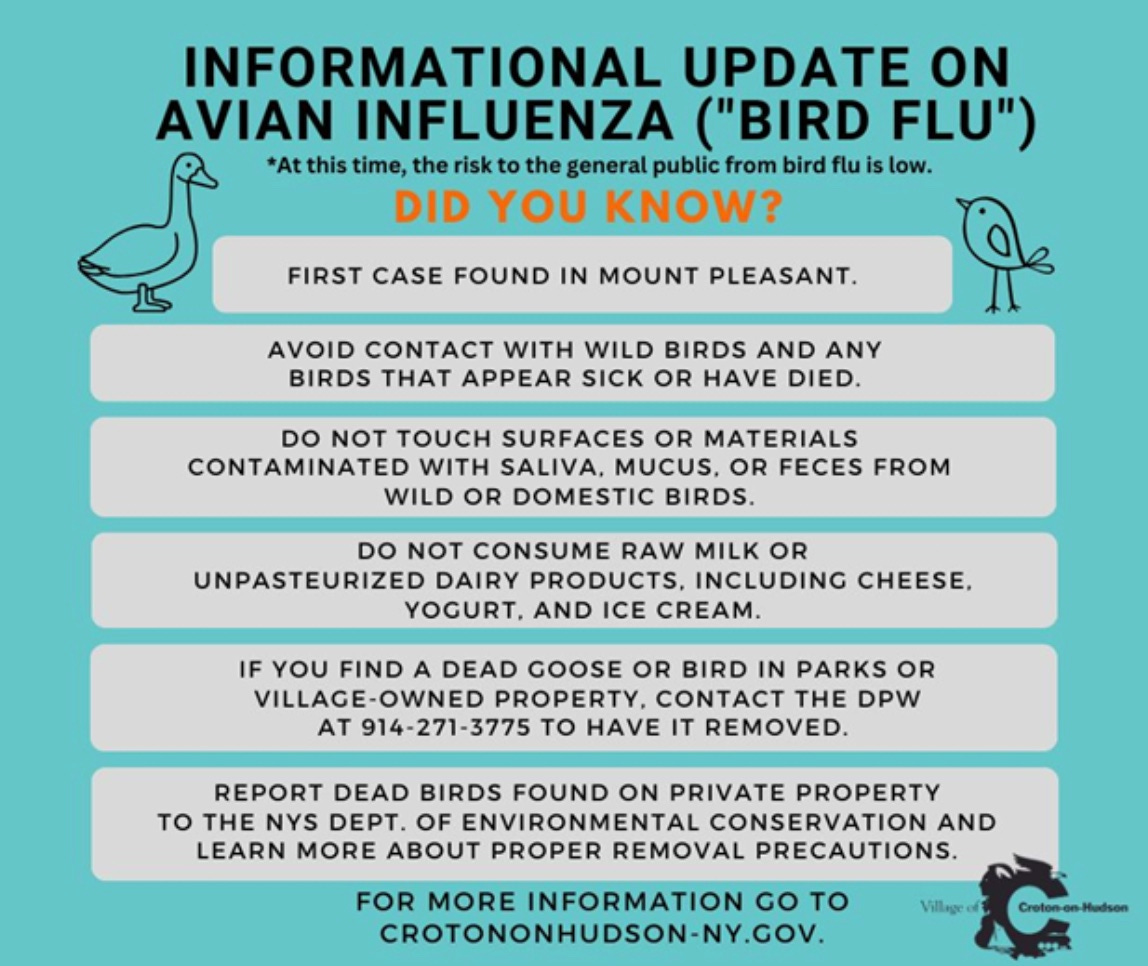New Online Form to Report Suspected Cases of Avian Influenza in Wild Birds.
As birds dying from avian flu are being found in New York City and surrounding counties, including Westchester, the NY Department of Environmental Conservation is making it easier to report incidents.
The Chronicle recently published a scientific backgrounder on avian flu and its possible risks to humans. This is not something happening far away from Croton, but pretty much in our backyard in Westchester County. Last week, for example, Canada geese found dead at Carroll Park in Mount Pleasant tested positive for avian flu. Most human cases so far involve direct contact between infected animals and people, rather than person-to-person contact. But the more often humans are infected, the more likely it is that the virus will mutate into a form that could cause serious disease. There is already evidence that the virus can be fatal to people who are particularly vulnerable to infection.
Now New York state’s Department of Environmental Conservation has made it easier to report possible sightings of possible or suspected avian flu in wild birds. We reproduce its announcement in full, complete with links, below.
In addition, the village of Croton-on-Hudson has created a graphic giving advice on how to minimize your chances of coming into contact with the virus and reporting sightings of possibly infected birds.
From the NYSDEC:
New Form to Report Suspected Cases of Highly Pathogenic Avian Influenza in Wild Birds
HPAI is widespread in wild birds and mammals, so not all reports will result in DEC retrieving the animals for testing and/or disposal. The public can help minimize risk and limit disease spread by preventing contact between domestic animals and wild birds.
If you encounter a live, sick bird or mammal, contact your Regional DEC office or a local wildlife rehabilitator for guidance. Call ahead to make sure there is a wildlife rehabilitator or veterinarian willing to accept the animal, as accepting these animals may put other animals in the facility at risk. Do not handle, transport, or euthanize any sick birds or other wildlife yourself.
In cases where DEC field staff are not responding to collect samples or carcasses from the landscape, please limit direct contact with dead wildlife and keep children and pets away. To dispose of a dead bird safely:
Wear disposable gloves, a mask, and eye protection, like safety glasses or goggles.
Avoid direct contact with the carcass or carcass fluids by using a shovel or a garbage bag to pick up the bird.
Carcasses should be triple bagged (garbage or contractor bags) and placed in an outdoor trash receptacle.
Remove and throw away your gloves. Wash your hands with soap and water immediately after removing gloves.
Change your clothes and wash them after disposing of the bird.
If you used a shovel, clean it with hot, soapy water and disinfect it with diluted bleach (1/3 cup bleach added to a gallon of water).
The U.S. Centers for Disease Control and Prevention states that recent HPAI detections in birds pose a low risk to the public. While there is likely little risk for the public, people with close or prolonged unprotected contact with infected birds or virus-contaminated environments are at greater risk of infection.
More information about HPAI, including how it is spread and which animals can be infected, is available on our Animal Diseases webpage and in the full press release.
**********************************************************************************************************
To share this post, or to share The Croton Chronicle, please click on these links.






I’ve had to remove a remark that violated the comments policy of this publication. Readers are asked to be polite and respectful, and to not engage in hate speech. The remark was racist and offensive and so was deleted.
A bit off topic but why isn't anything being done to control the Canada Geese population in Westchester? In addition to the fact that they pollute the parks and playgrounds we now know that they can carry communicable disease. They serve no purpose and their presence here in the winter is not a natural condition.